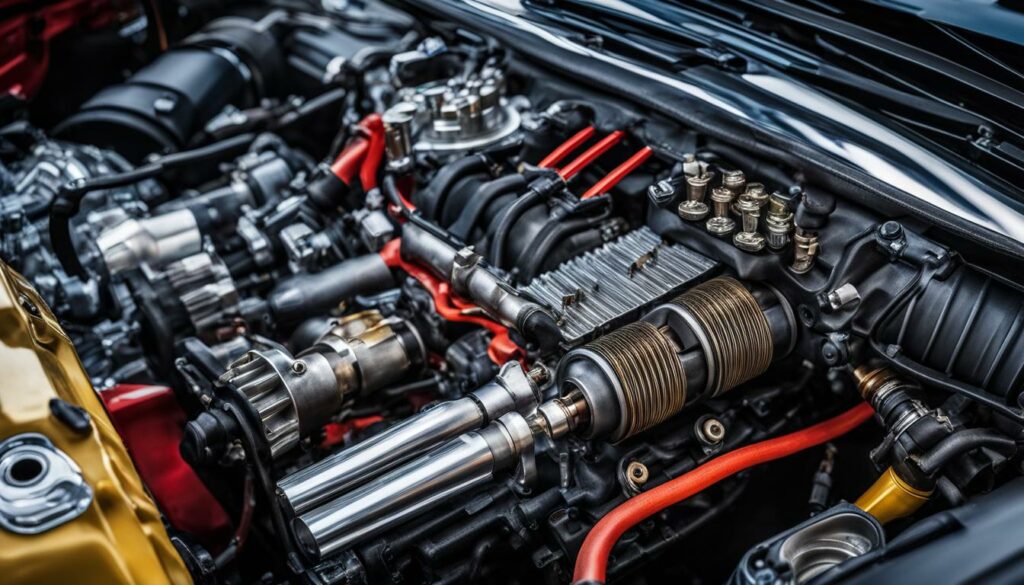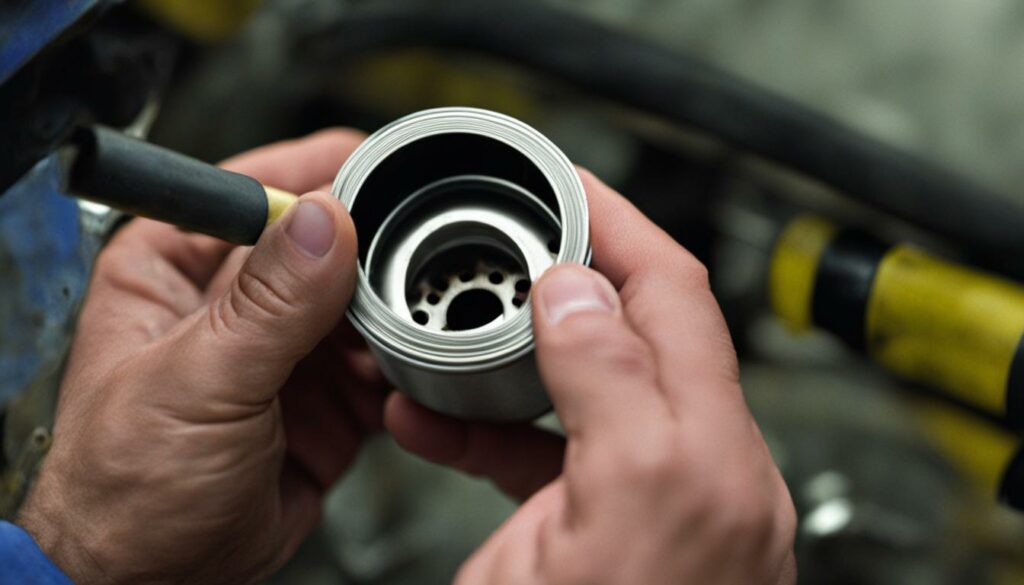Have you noticed that your car is not performing as well as it used to? Does it feel sluggish when you accelerate? If so, there could be several reasons why this is happening, and it’s important to address the issue before it worsens. Poor performance can not only be frustrating, but it can also put you and others on the road at risk.
In this section, we’ll explore some common causes of poor performance, including issues related to your car’s engine, and offer insights from experts on how to fix them. By the end of this section, you’ll have a better understanding of why your car feels sluggish when accelerating and how to improve its performance.
Key Takeaways:
- Sluggish acceleration can be caused by various issues
- The engine plays a crucial role in your car’s performance
- Addressing problems related to the engine, fuel and ignition systems, transmission, and exhaust can help improve performance
- Regular maintenance can prevent issues and keep your car running smoothly
- Consulting with a professional mechanic can be helpful in diagnosing and fixing problems

Checking the Air Filter
If your car feels sluggish when accelerating, checking the air filter should be your first step. The air filter is a crucial component of the engine that ensures clean air flows into the combustion chamber. Over time, the air filter can become clogged with dirt, debris, and other contaminants, which restricts airflow and reduces engine performance.
To check the air filter, locate the air filter housing under the hood. Open the housing and remove the air filter, inspecting it for any dirt or debris. If the filter appears dirty or clogged, it’s time for a replacement. A clean air filter can significantly improve your car’s engine performance, providing better acceleration and power.
Replacing the air filter is a simple task that you can do yourself or have done by a professional. It’s recommended to replace the air filter every 12,000 to 15,000 miles or every year, whichever comes first. A new air filter can improve engine performance, including acceleration and fuel efficiency, helping you save on gas in the long run.
Inspecting the Fuel System
If your car feels sluggish when accelerating, the fuel system may be to blame. The fuel filter plays an essential role in ensuring a consistent flow of clean fuel to the engine, promoting optimal performance.
To inspect the fuel system, start by checking the fuel filter for signs of wear or blockage. A clogged filter can restrict the fuel supply, causing your car to feel sluggish or even stall. You may need to replace the fuel filter if it appears dirty or damaged.

Once you have inspected the filter, move on to the fuel lines and connections. Look for any signs of leaks, cracks, or damage and tighten any loose connections. A faulty fuel line can disrupt the fuel supply and lead to inconsistent performance.
It is also important to ensure that the fuel injectors are clean and functioning correctly. Over time, debris and contaminants can clog the injectors, impairing their ability to deliver fuel to the engine. Consider using a fuel system cleaner to maintain the injectors and promote optimal performance.
Fuel System Inspection Checklist
| Step | Action |
|---|---|
| 1 | Check the fuel filter for wear or blockage |
| 2 | Inspect the fuel lines and connections for leaks or damage |
| 3 | Clean or replace the fuel filter if necessary |
| 4 | Clean the fuel injectors with a fuel system cleaner |
Regularly inspecting and maintaining the fuel system can help improve your car’s performance and prevent issues down the road. If you continue to experience sluggish acceleration after inspecting and maintaining the fuel system, consider seeking professional assistance to identify and address the issue.
Maintaining the Ignition System
When was the last time you checked your spark plugs or ignition system? A poorly maintained ignition system can lead to reduced engine performance and sluggish acceleration. That’s why it’s essential to keep these components in tip-top shape.
The ignition system works by igniting the air-fuel mixture within the engine, so worn-out spark plugs or other ignition components can cause issues with acceleration and power. To keep your ignition system performing at its best, it’s recommended to replace spark plugs every 30,000 miles or as recommended by your car manufacturer.
You can inspect your spark plugs using a spark plug socket wrench and a spark plug gap gauge. Check for signs of wear or damage, such as cracks or debris on the electrode. If you notice any issues, it’s time to replace your spark plugs.
In addition to spark plugs, other ignition components that can affect performance include ignition coils, wires, and the distributor cap. These can also become worn out or damaged over time, so it’s important to inspect and replace them as needed.
Regular maintenance of your ignition system can lead to improved engine performance and acceleration. So, make sure to schedule regular tune-ups with a qualified mechanic or perform the inspections yourself if you have the knowledge and tools. Trust us; your car’s performance will thank you.
Regular maintenance of your spark plugs can lead to improved engine performance and acceleration.
Evaluating the Transmission and Exhaust System
Your car’s transmission and exhaust system are critical components that affect its performance. The transmission transfers power from the engine to the wheels, while the exhaust system expels gases from the engine.
A worn-out transmission can cause your car to hesitate or jerk when accelerating. On the other hand, a clogged or leaking exhaust system can cause a decrease in power and acceleration.
To evaluate your transmission, check the fluid levels and examine the condition of the filter. If the fluid is dirty or low, it can cause significant damage to the transmission over time. If the filter is clogged, it can limit the transmission’s performance. If you notice any issues, take your car to a professional mechanic for an inspection.
Similarly, inspect your exhaust system regularly for any signs of damage or wear, such as rust or cracks. You may also notice a loud rumbling noise or unusual exhaust fumes if the system is clogged or damaged. Replacing a damaged exhaust system or repairing leaks can restore lost power and improve acceleration.

In summary, evaluating your car’s transmission and exhaust system is crucial to maintaining its performance. Regular maintenance and prompt repairs can help you avoid costly damage and ensure a smooth driving experience.
Conclusion
Congratulations on taking the first steps towards improving your car’s performance and power. By understanding the common causes of a sluggish acceleration and how to address them, you can enjoy smoother rides and a more responsive vehicle.
However, it’s important to note that monitoring and optimizing performance is an ongoing process. One key component of this process is utilizing sensors to track and assess various aspects of your car’s performance, such as fuel efficiency and engine health. By staying aware of this data and acting accordingly, you can ensure that your vehicle is always operating at its best.
Incorporating these tips and tricks into your regular car maintenance routine will not only improve your car’s acceleration but also prolong its lifespan and prevent more significant issues down the road. So, don’t wait any longer and give your car the boost it deserves!


